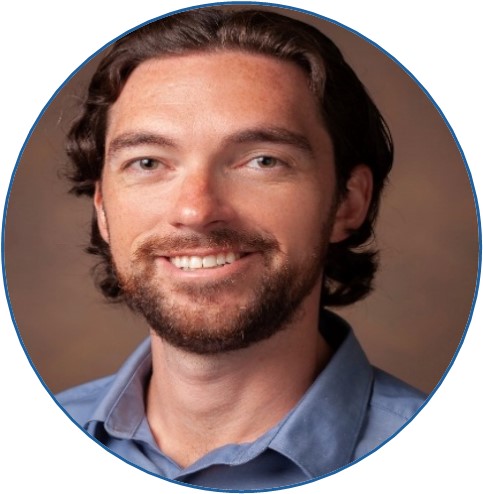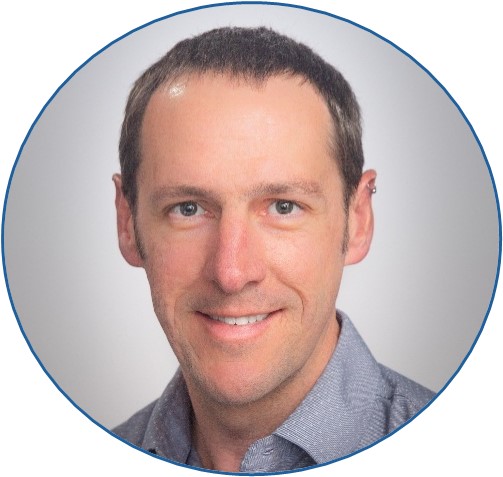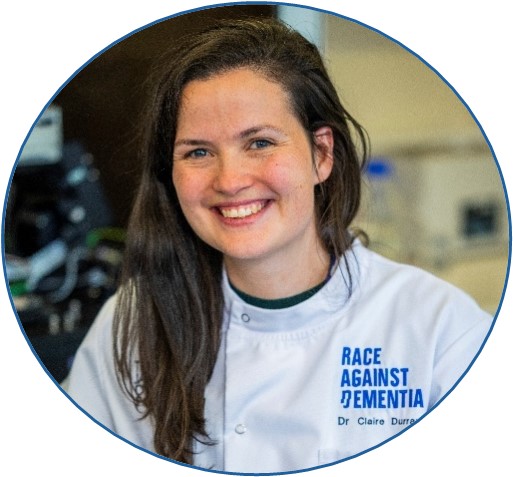BNA Annual General Meeting 2025
1st April 2025
BNA Event - 20th May 2025

The BNA is delighted to be working with Scientifica to host this free webinar taking place on Tuesday 20 May 16.00- 17.00 BST
REGISTER TODAY |
Looking to take the next step in your research career? Join this interactive live panel for real-world advice from researchers who’ve successfully set up their own lab.
This webinar is designed for postdocs and early-career researchers—especially if you’re working in electrophysiology or related techniques. We’ll explore key topics like how to prepare during your postdoc, apply for faculty roles, secure your first grant, and set up your own lab. You’ll also have the chance to ask your questions in a live Q&A.
Host: Adam Jackson, Scientifica
Speakers:
 Professor Alicia D'Souza, Imperial College London
Professor Alicia D'Souza, Imperial College London
Professor Alicia D'Souza is a Reader (Associate Professor) in Cardiac Electrophysiology and a British Heart Foundation Intermediate Fellow at the National Heart and Lung Institute at Imperial College London. Alicia’s research focuses on understanding the mechanisms by which ion channels in the hearts electrical wiring system are controlled. Trained as a cardiac physiologist during her PhD at the University of Central Lancashire (2012), Alicia completed postdoctoral studies in the laboratory of Professor Mark Boyett at the University of Manchester investigating pacemaking in endurance athletes. Subsequently she was awarded a BHF Intermediate Fellowship in 2019 during which she established an independent research group that has advanced understanding of the cellular mechanisms that underlie conduction system function in health and in disease. Alicia was recruited to a tenured Readership at Imperial College London in 2023 and impetus for her move was the opportunity to perform electrophysiological studies in human heart tissues through a dedicated donor programme at Imperial and to work alongside world-leading researchers in a British Heart Foundation Centre of Excellence. Alicia’s work has been popularised in the media (Recent examples :circadian clocks and AV node disease )and led to numerous awards including the International Society for Heart Research/SERVIER Fellowship Prize, the (inaugural) Cairn Research ‘New and Notable’ Prize Lecture and The Physiological Society’s (inaugural) R Jean Banister Prize Lecture. Alicia’s group is also part of a Fondation Leducq Transatlantic Network of Excellence focused on novel pharmacotherapies for sinus node dysfunction. Outside the lab Alicia enjoys chasing after her daughter (aged 8), pilates, theatre and exploring various cultures and cuisines. She also aspires to one day join the Ceramics collection team at the Victoria and Albert Museum.
 Dr. Samuel W Centanni, Wake Forest University School of Medicine
Dr. Samuel W Centanni, Wake Forest University School of Medicine
Dr. Samuel W. Centanni is an Assistant Professor in the Department of Translational Neuroscience at Wake Forest University School of Medicine in Winston-Salem, North Carolina. He earned his Ph.D. in Biomedical Neuroscience from the Medical University of South Carolina, where he studied how adolescent alcohol exposure affects prefrontal cortical neurotransmission. He then completed a postdoctoral fellowship at Vanderbilt University, investigating cannabinoid signaling in amygdalar circuits in stress and alcohol use disorder. In 2021, Dr. Centanni established his independent lab at Wake Forest. The Centanni Lab examines how stress alters insular cortex synaptic physiology and circuit functions and how these changes contribute to substance use and mood disorders. His lab uses techniques like fiber photometry, light sheet microscopy, and slice electrophysiology in rodent models. Dr. Centanni has over 30 publications and has received multiple grants and awards, including an NIH F31 NRSA, an NIH K99/R00 Pathway to Independence Award, two Brain & Behavior Research Foundation NARSAD Young Investigator Awards, and a Whitehall Foundation Research Grant. He leads a lab with four PhD students, two research technicians, and four undergraduate researchers.
 Dr Russell Morton, University of New Mexico
Dr Russell Morton, University of New Mexico
Dr. Russell Morton is an Assistant Professor in the Department of Neurosciences at the University of New Mexico Health Sciences Center. He received his PhD from George Washington University while conducting his research in the laboratory of Dave Lovinger at the National Institutes of Health and moved to New Mexico for a postdoctoral fellowship in the laboratory of Fernando Valenzuela. He transitioned to Research Tract Assistant Professor in 2017 to establish the Preclinical Core as part of the Center for Brain Recovery and Repair. He began his tenure track position in November 2018. His research focuses on the phenomenon of spreading depolarizations in concussions, utilizing a mouse model to investigate these injuries. His findings have shown that spreading depolarizations can be initiated even in cases of mild closed skull injuries. Furthermore, he has demonstrated that the acute behavioral deficits associated with these injuries are linked to the initiation of the spreading depolarization. In his lab, he employs a variety of techniques, including both slice and in-vivo electrophysiology, as well as multiphoton imaging to analyze calcium levels and cerebral blood flow.
 Dr. Claire Durrant University of Edinburgh
Dr. Claire Durrant University of Edinburgh
Dr Claire Durrant is a tenured group leader at the Centre for Discovery Brain Sciences and an Emerging Leader in the UK Dementia Research Institute at the University of Edinburgh.
Research in Claire’s group is funded by Race Against Dementia, The James Dyson Foundation, The Alzheimer’s Society, Medical Research Scotland and The Wellcome Trust. Her diverse team focuses on understanding causes and consequences of synapse loss in neurodegenerative disorders, including Alzheimer’s disease. Her group use a variety of techniques spanning post-mortem human brain, mouse organotypic brain slice cultures and live human brain slice cultures. Claire’s team work closely with an interdisciplinary group of clinical, pharmaceutical and academic collaborators in Edinburgh and globally.
Outside of the lab, Claire is passionate about communicating her work to the public and wider research community. She regularly participates in public engagement through TV, radio, written press and podcast interviews and has been invited to speak on numerous panels and podcasts relating to career progression in dementia research.
Before coming to Edinburgh in 2019, Claire obtained a first-class degree in Natural Sciences (specialising in Neuroscience) from the University of Cambridge (2010-2013). She went on to complete her PhD in the lab of Prof. Michael Coleman at the Babraham Institute, Cambridge (2013-2016) before undergoing a postdoc at the John van Geest Centre for Brain Repair (University of Cambridge 2016-2019).
REGISTER TODAY |
Code of conduct
All attendees at meetings organised by the BNA must follow our Code of Conduct. This includes speakers, delegates, staff and anyone else involved with the event. Please read in full here.
*This event is co-organised by Scientifica as part of a supporter's package. Support for the BNA's work is gratefully acknowledged; see more about supporting the BNA here.